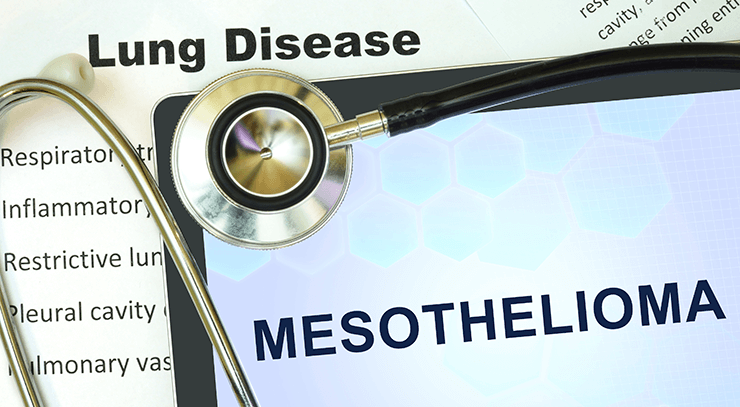Mistaken diagnosis
Symptoms of mesothelioma can often be confused with a variety of other medical conditions and diseases—especially if only a physical exam is performed. For example, coughing and chest pain may be confused with lung cancer, and fatigue may be confused with some type of infection.
Other diseases that may be confused with mesothelioma include Lyme disease, asbestosis, bowel disease, emphysema and heart failure.
Mesothelioma can only be detected if the right tests are performed to check for it, and even then, it can still be challenging to determine the type (pelural, peritoneal, pericardial or testicular) because of metastasis.
Methods used to diagnose mesothelioma
Appearance: Your doctor will check your vital signs, such as your blood pressure and temperature, use a stethoscope to listen to your lungs, and do anything else that is normally done during a routine checkup.
Review of medical history: Your doctor will look at your medical history, paying special attention to your past illnesses, any illnesses that your family has and lifestyle. You may also be asked about your work, since mesothelioma often develops in people who are exposed to asbestos in their job.
Biopsy: A small amount of tissue or fluid is taken from the affected area. Tissue may be removed by either excision or needle/thin tube. A pathologist then inspects the sample under a microscope, examining the cellular structure to see if any cancer cells are present. There are three types of mesothelioma cancer cells that are distinguished by their shape: epithelial, sarcomatoid, and biphasic. A biopsy is generally the only way to accurately determine if you have mesothelioma, and it is more reliable if the sample is taken directly from the affected lining of the lungs, abdomen, heart or testicles. Once you have a biopsy, calretinin staining can be performed.
Calretinin staining is a technique that helps doctors diagnose mesothelioma. It involves immunohistochemistry. Immunohistochemistry (IHC) is a method of searching for antigens. Antigens are toxins, bacteria or other foreign substances that your immune system reacts to by producing antibodies to fight them. The antigens are fixed on a slide and then the interaction with an antibody is visualized with a stain, such as calretinin. Calretinin is a protein that binds to calcium.
IHC is a standard technique used to help diagnose mesothelioma, as well as other cancers.
Calretinin staining has been proven to be effective in accurately diagnosing mesothelioma than another type of disease. One study found that it is useful in differentiating mesothelioma from adenocarcinoma, another type of cancer that it is often misdiagnosed as being. The study found that calretinin staining positively identified 87.5% of cases1.
Imaging tests: A visual of the inside of your body can be created with imaging technology using x-rays (x-ray or CT scan), sound waves (echocardiogram or ultrasound), radioactive substance (PET scan) or magnetic fields (MRI). This allows your doctor to see if any unusual growths are present and their location.
Blood tests: There are certain substances that are higher the blood of patients with mesothelioma. These include osteopontin and soluble mesothelin-related peptides (SMRP). SMRP is tested by a MESOMARK® test. Blood tests aren’t commonly performed, though, because they aren’t entirely reliable. Usually, they’ll only make it more likely that a positive diagnosis is obtained or help see how a patient is responding to treatment after they’ve already been diagnosed.
You are not alone. Our Mesothelioma lawyers
are here to help. Contact us today.
Footnotes
1. Calretinin staining patter aids in the differentiation of mesothelioma from adenocarcinoma in serous effusions
